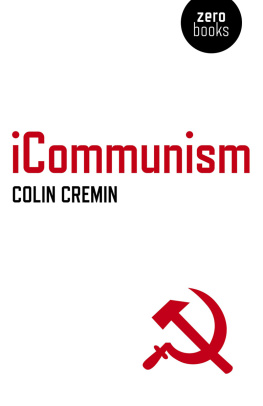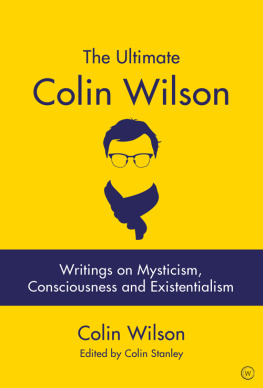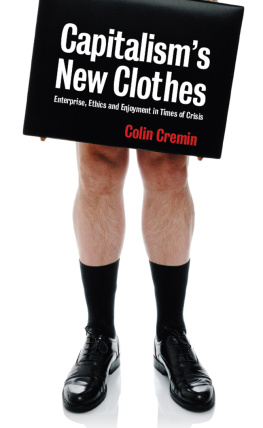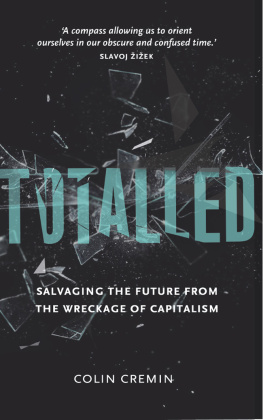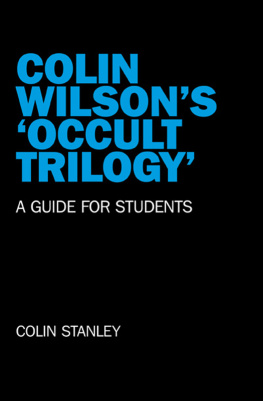Capitalisms New Clothes
Capitalisms New Clothes
Enterprise, Ethics and Enjoyment in Times of Crisis
COLIN CREMIN
First published 2011 by Pluto Press
345 Archway Road, London N6 5AA
www.plutobooks.com
Distributed in the United States of America exclusively by
Palgrave Macmillan, a division of St. Martins Press LLC,
Copyright Colin Cremin 2011
The right of Colin Cremin to be identified as the author of this work has been asserted by him in accordance with the Copyright, Designs and Patents Act 1988.
British Library Cataloguing in Publication Data
A catalogue record for this book is available from the British Library
ISBN 978 0 7453 2815 7 Hardback
ISBN 978 0 7453 2814 0 Paperback
ISBN 978 1 7837 1680 7 ePub
ISBN 978 1 7837 1681 4 Mobi
Library of Congress Cataloging in Publication Data applied for
This book is printed on paper suitable for recycling and made from fully managed and sustained forest sources. Logging, pulping and manufacturing processes are expected to conform to the environmental standards of the country of origin.
10 9 8 7 6 5 4 3 2 1
Designed and produced for Pluto Press by Chase Publishing Services Ltd
Typeset from disk by Stanford DTP Services, Northampton, England
Simultaneously printed digitally by CPI Antony Rowe, Chippenham, UK and Edwards Bros in the USA
CONTENTS
ACKNOWLEDGEMENTS
First of all, my immense gratitude to all of the people at Pluto Press, and especially David Castle, for their support in helping me to realise this first book project. Thanks also to the anonymous reviewers and the editors of journal articles cited in the book. In New Zealand, I would like to thank the staff (academic and administrative) from the Department of Sociology at the University of Auckland for helping create such a pleasant working environment. Special mention goes to Bruce Curtis and Tracey McIntosh who have been especially supportive in their roles as heads of department; and Steve Matthewman whose comments on drafts have proven invaluable. I am also grateful to Alyssa Lee for helping to gather material for the ecology chapter and the Faculty of Arts at the University of Auckland for funding her Summer Scholarship. Thanks, too, to the students taking my courses at Auckland: their enthusiasm, intellect and imagination make teaching both a privilege and a pleasure. Thanks to Eluned Summers-Bremner for all her help and support in helping me to secure a grant for a related project. Also, my gratitude to Sarah Thompson for the initial proofreading of the book and Nuala Ernest for the final copy-editing.
Beyond Auckland, I would like to thank my PhD supervisors, first, Richard Kilminster for having confidence in me during the most trying of times and for his ongoing support and encouragement, and Ray Pawson who was also instrumental in helping me through the more difficult periods of my study. Thanks also to colleagues and friends at Sunderland University where I previously worked. Carole Wright, Austin Harrington and Greg Martin whose friendships I value on many levels, and Julie Lord who continues to inspires me in thought and in practice. Special thanks to John M. Roberts for encouraging me through the difficult moments while also proving to be an invaluable critic and mine of information. Finally, to the people not specifically mentioned here who over the years have given their time, friendship and love along this sometimes hazardous journey, I thank you all.
INTRODUCTION
The story of the Emperors New Clothes is one we are all familiar with. It is often used as a metaphor for ideology. Capitalism is the naked emperor and the new clothes whatever ideological gown we drape over him to forget or disavow what is only too apparent. Ideology is our reality. It enables us to make sense out of non-sense, to have a sense of who we are and to generate meaning from chaos. When, in 2008, the financial markets went into turmoil, even the most skilled of tailors had trouble convincing anyone that the Emperor was anything but naked. Everybody could hear the little boy shouting, Look, the Emperor isnt wearing any clothes! and in every quarter the media pundits, the free-market evangelists and the politicians all scrambled around hopelessly trying to find a way to cover the embarrassment. The corrupt financial traders, profligate consumers, inept politicians, eventually even the public sector, were the targets of ire stitched together to form a ragtag garment of ideological indeterminacy. We all had to pitch in to get through a crisis we were all somehow made to be responsible for. But what kind of capitalism are we speaking of here?
There are many ways to clothe what is essentially a system based on the perpetual exploitation of all resources, human and natural, for the purposes of profit or what Marx called surplus-value. Sometimes the fabric is of a racist or sexist nature. The Emperors finest tailors, the corporations, liberal-parliamentary state, non-governmental organisations (NGOs) and so on, are not in the habit of using such yarns although their practices often suggest otherwise. Theirs are more refined and softer on the eyes. This book is about an ideology woven by the enterprise of those concerned about the ethics of capitalism and at the same time embarrassed by the enjoyments the system has afforded them.
From a linguistic perspective we can never escape ideology. We might see through certain layers, but eventually we have to account for the nakedness through the imprecise device of language. In talking about capitalisms new clothes we draw attention to the fact that, however the social relations of society are dressed, there are truths about those relations that make some interpretations better than others. Critical theorists engage in an endless quest for that truth. Some of the best have shown that by combining the materialism of Marx, psychoanalytic theory and social linguistics, you have a better prospect of unpicking the threads of the social relations, subjective desires and ideological props than those who employ one approach at the expense of the others. Postmodern theory, with its emphasis on linguistics, is a case in point. So too, though, is the cruder materialism of the dogmatic versions of Marxism. Some of the most impressive theorists, such as Adorno, Marcuse, Deleuze, iek and Badiou, have often been accused of under-theorising or misappropriating Marx. The more serious problems lie with those that in I describe as left-liberals. I am thinking here of figures such as Michael Hardt and Toni Negri, Ulrich Beck, John Urry and others who while critical of many aspects of capitalism tend, in my view, to confuse rather than advance analysis on the fundamentals.
Marxists sometimes neglect the buried impulses of subjectivity and the ideological knots into which we are all linguistically bound. In the past 30 or so years, many disillusioned Marxists have neglected political economy. Capitalisms New Clothes subscribes to a form of ideological critique that makes use of materialist, linguistic and psychoanalytic concepts to theorise the individual and society at this critical juncture. It explores, in the tradition of critical theory, the ideological configurations of apparatuses of power and how they are reproduced and challenged at a subjective level in societies oriented to mass consumption. It borrows from and advances observations of Frankfurt School theorists, such as Theodor Adorno and Herbert Marcuse, who describe how people are seduced into wanting a system that essentially enslaves them. It returns to progenitors, Marx, Weber and Freud, while looking to more contemporary theorists such as Slavoj iek, whose advocacy of a politics of the impossible this book endorses.











